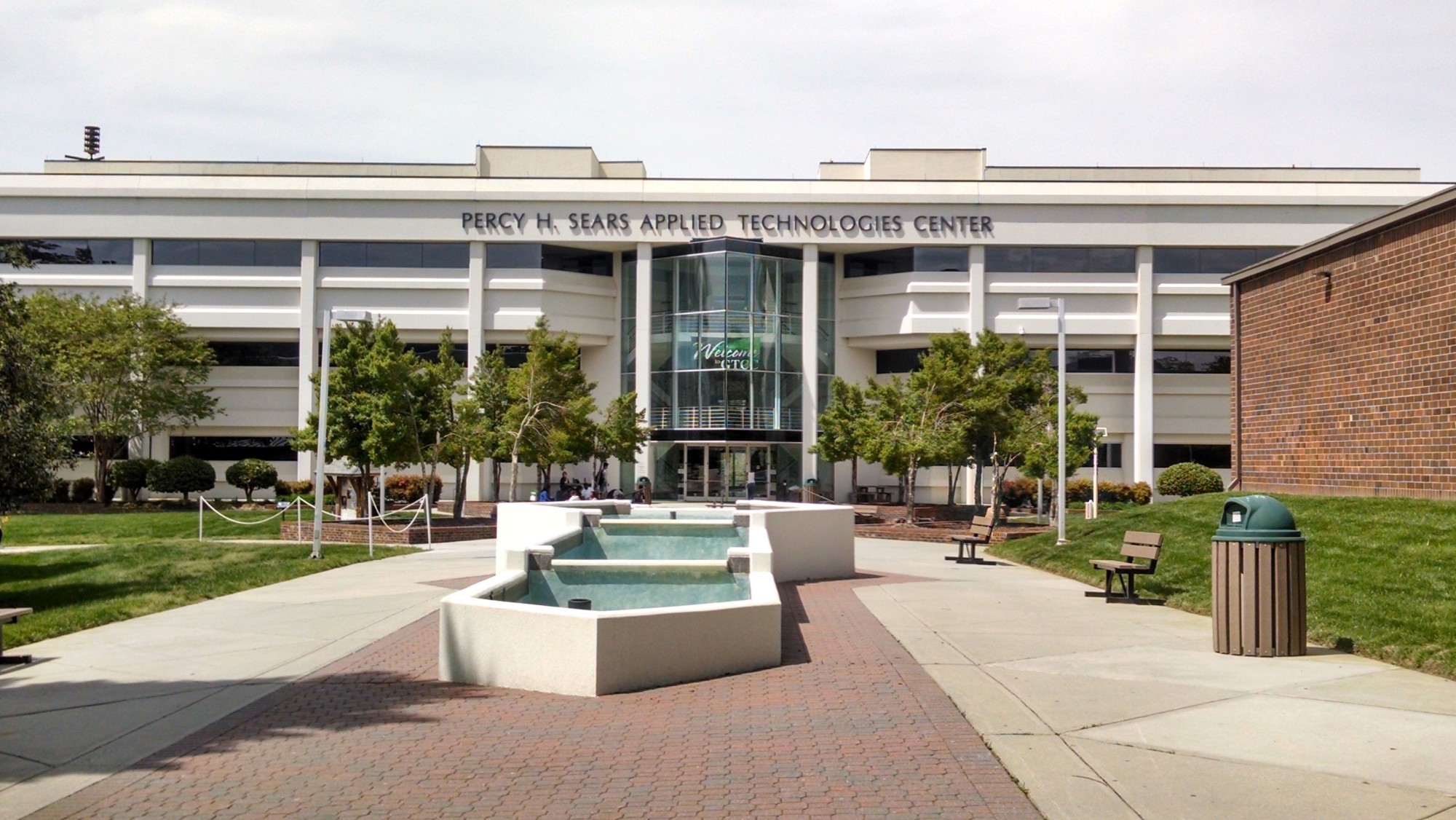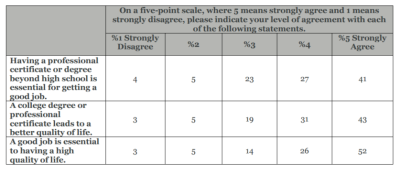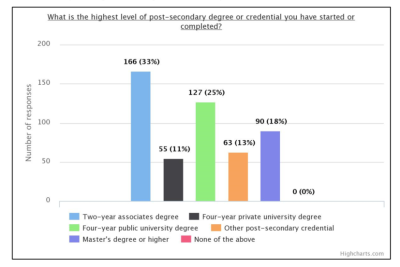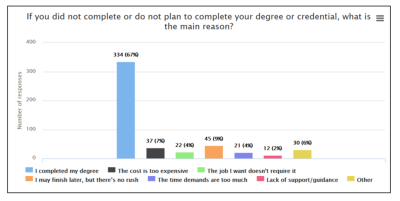The N.C. Center for Public Policy Research conducted an online statewide poll to survey respondents on the highest credential completed, student loan amounts, and reasons North Carolinians do not complete their degree.1
To provide a unique look at state-level responses, the Center’s survey was limited to North Carolinians. Some of the results provide additional insight into the state-specific story of how individuals are pursuing higher education and what types of barriers they are facing.
Posts this week highlight these poll results and also include public opinion on higher education issues from national surveys.
What is the highest level of post-secondary degree or credential you have started or completed? (Click on figure to enlarge)
- 33% of the respondents have started or completed a two-year associate degree, compared to 11% with a four-year degree from a private university and 25% with a four-year degree from a public university.
- 13% of respondents reported starting or completing a different type of post-secondary credential (See “Other post-secondary credential” in figure above). The UNC Board of Governors is revising the UNC System Strategic Directions Plan as it relates to the educational attainment goal to “work with the North Carolina Community Colleges System to develop an educational attainment measure that captures degrees earned at the Associate’s and Bachelor’s levels, as well as awarded certificates, diplomas, and third-party industry certifications.”
Broadening and reframing the definition of success in terms of educational attainment was discussed in Part Four of the Center’s “A Strong Economy through Post-Secondary Education” series.
If you did not complete or do not plan to complete your degree or credential, what is the main reason?
- Among the reasons for not finishing a degree or credential, 7% of respondents cited financial reasons and 9% answered they may finish later.

A national poll2 conducted by Gallup and the Lumina Foundation surveyed national opinions on the importance of post-secondary credentials, barriers to higher education, and levels of student debt. (Click figure to enlarge)
-
 For example, 96% of respondents said it is “somewhat important” or “very important” for adults to have a degree or professional certificate beyond high school.
For example, 96% of respondents said it is “somewhat important” or “very important” for adults to have a degree or professional certificate beyond high school.  Look for more poll results in the next post.
Look for more poll results in the next post.
A Strong Economy through Post-Secondary Education
Introduction Part One Part Two Part Three Part Four
Promising Programs Statewide: Fayetteville State University
Promising Programs Statewide: Elizabeth City State University
Promising Programs Statewide: College of The Albemarle
Promising Programs Statewide: Asheville-Buncombe Technical Community College
Promising Programs Statewide: Bladen Community College
Snapshot: Veteran and Military Students
Promising Programs Statewide: UNC-Greensboro
Promising Programs Statewide: Bennett College
Promising Programs Statewide: University of North Carolina at Charlotte
Promising Programs Statewide: University of North Carolina at Pembroke
The N.C. Center for Public Policy Research is grateful to numerous, generous supporters. Major funding for this project is provided by the Lumina Foundation for Education, with additional funding from the James G. Hanes Memorial Fund, and the Hillsdale Fund.
- Survata Online Survey conducted Nov.-Dec. 2014, Respondents: 501 adults living in North Carolina. Percentages may not total 100 due to rounding. ↩
- “Postsecondary Education Aspirations and Barriers,” The survey of 1,533 individuals was conducted in November and December of 2014 by Gallup on behalf of the Lumina Foundation. Available at http://www.gallup.com/poll/182462/postsecondary-education-aspirations-barriers.aspx. ↩



